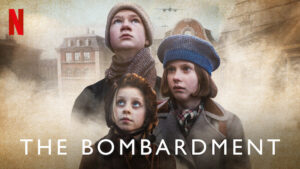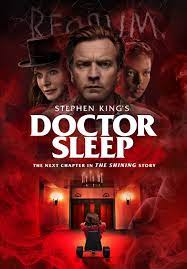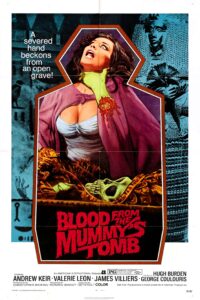
Netflix
Two days ago, Ben Shapiro took to Twitter to pronounce Glass Onion, reviewed on this blog and a wonderful film, was in fact bad artistically and politically. His opinion is flawed and idiotic as I will demonstrate.
Be warned after this like blood, There Will Be Spoilers.
Ben Writes:
First, the writing. The first half of the movie is a complete misdirect and a waste of time.
and
We only find out about the actual murder we’re supposed to investigate full one hour and ten minutes into the film, as well as an entirely new backstory (Miles never invited Blanc, and Andi has a twin sister masquerading as her). We’re actively deceived by the writer.
Many people have already pointed out the idiocy of not expecting misdirection in a murder mystery, but I want to lean on the word ‘complete’ which implies quite falsely that there were no clues, (You know what clues are don’t you Ben?) in the first act that what we were presented with was not the entire picture.
As each invitee receives the box, they each understand it is a puzzle and seek to solve it. Calling on each other for help. Helen/Andi doesn’t try to solve it but attacks it with furious anger. Not frustration, not annoyance, but intense hatred.
When we see the first puzzle box delivered to Claire, we are shown that it came by professional courier. Yet, while Blanc is in the tub playing online games with celebrities a voice calls out, “Someone is here to see you.” pause “And they have a box.”
Phillip did not shout out, “There’s a delivery!” or “Ben you have to sign for this!” or “What did you order?” None of the things people actually say when confronted with a surprise delivery. Look Ben, a clue that this was not like the others.
As the invitees arrive at the pier to go to the private island it is clear that Blanc is watching each arrival carefully. Yet, when he speaks it is an exaggeration of his normal patterns. A clue that he is already playing a part.
When Miles sees Andi’s arrival at the island, the reaction is one of utter shock. Edward Norton gives you the full reaction of a man seeing someone who he really really thought was dead. Not the socially awkward reaction of an unwanted guest. It is as obvious and as easily missed as looking directly at Bruce Willis and saying, “I see dead people.”
After Helen/Andi’s initial confrontation with the disruptors, she stumbles off, after she clearly not knowing that Claire had called following up on the email, Claire muses “She’s changed.” Well, yes here’s another clue that Andi is not in fact Andi, a pretty big one.
Oh, and ben we didn’t wait half the film to discover that Miles hadn’t invited Blanc. Miles took Blanc aside when he arrived and stated he had not invited him, and Blanc misdirects him to think one of the others ‘reset’ their puzzle box to invite him as a gag.
Why the misdirect? Because the story itself in the purest form of incredible laziness. It relies on not one, not two, but three bad writing tropes: an identical twin, a comprehensive journal, and a moron of a murderer.
Well, as has been stated, misdirection in mysteries, like magic tricks, are an essential element of the genre. There were, as I have detailed, plenty of clues that Andi was not Andi, and Miles, while a moron, actually performed a pretty decent murder. So well executed in fact that at the end of the story it is clear he will face no legal consequences for killing Andi.
Now onto Ben’s interpretation of the film’s politics.
Rian Johnson’s politics is as lazy as his writing. His take on the universe is that Elon Musk is a bad and stupid man, and that anyone who likes him – in media, politics, or tech – is being paid off by him.
A common interpretation is the Miles Bron is a thinly veiled swipe at Elon Musk. While Bron is a ‘tech bro’ there is actually nothing in the film that makes him a direct comparison to Musk. There is never a mention of any space venture, though that would cover both Musk and Bezos, no mention of electric cars, in fact it is a plot point that Miles’ car, that he loves, is a gas car, and no mention of any form of electronic payment systems. Nor is there any hint that Miles owns social media. The film was written and produced before Musk nose-dived into Twitter. In short none of the businesses that briefly made Musk the richest man in the world apply to the character of Miles Bron. In fact, Miles’ internet company, Alpha, with things like Alpha News, an important plot point, is much more like Alphabet, the company that owns Google, than anything Musk has been associated with.
For the rest of his twitter thread Ben continue to treat Miles as a stand-in for Musk apparently unaware that a character can represent a general type of person, douchey tech bro, rather than a specific person.
What about all the people who like Musk? They’re dumb and corrupt, too (which means you need no logic for them, so more bad writing!). This means that all Miles’ friends/supporters are still “sucking the golden teat” for Miles/Musk because he keeps signing them checks.
Ben is incredulous that rich powerful people can be surrounded by sycophants, yes-people, and moochers. We can look to Trump’s current legal teams to see how the best and the brightest are attracted to wealth and power.
One of the most important lines, defining the character of Vito Corleone, in The Godfather is when Tom tells the movie mogul “Mr. Corleone is the sort of man who insists on hearing bad news right away.” It tells us that unlike many many powerful people the Godfather does not want yes-men but the truth and that is an aberration.
But any of them could, at any time, burn down Miles/Musk and reap massive benefits. Literally any of them. Duke would become, overnight, the biggest host in the world for uncovering the conspiracy of silence.
Ben really is either ignoring the realities of taking on the rich or he is an idiot. I’m not sure how Ben thinks the group of Mile’s ‘hanger-ons’ can take him down. Certainly not over the murder that they are ignorant of, perhaps by publicly stating he is in idiot. Hmm people do that all the time and it has failed to take down Musk or Trump. Of course, if you have something real, something damaging, then billionaire will take you to court and guess who will have the nearly unlimited resources and legal teams to grind you into poverty before it ever gets before the bench? Not one of the ‘disruptors’ has anything close to the financial or legal resources to take down Miles. Their livelihood is wedded to his, hence they are sycophants.
Now Glass Onion has well-worn and tired Hollywood tropes, but Ben is too thick to actually see those and instead he wails, cries, and moans that liberals are unfair to Musk, too blinded by his own prejudices to see what is really there. Honestly, Ben has done a perfect job of misdirecting himself.






